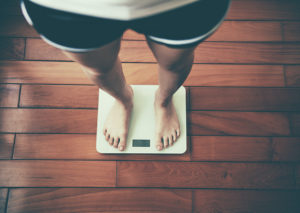 As modern society trends toward lifestyles that are decreasingly reliant on physical activity, and process foods are cheaper than ever, obesity continues its reign as one of the most alarming global health-related topics. This is especially true here in the USA, where obesity rates in adults are nearing 40% in several states. Recent statistics indicate that obesity-related diseases and disorders are responsible for 18% of deaths in Americans ages 40 to 85.1
As modern society trends toward lifestyles that are decreasingly reliant on physical activity, and process foods are cheaper than ever, obesity continues its reign as one of the most alarming global health-related topics. This is especially true here in the USA, where obesity rates in adults are nearing 40% in several states. Recent statistics indicate that obesity-related diseases and disorders are responsible for 18% of deaths in Americans ages 40 to 85.1
In their search for widespread solutions to the global obesity epidemic, researchers have discovered promising new results related to one of the simplest and most commonly dismissed tools for weight loss: dietary self-monitoring, or what is more commonly known as food tracking or calorie counting. A new study from the University of Vermont published in the March issue of Obesity suggests that the single best predictor of weight loss success is monitoring and recording calorie and fat intake throughout the day.2 A separate study from Duke University shows that overweight people who tracked daily food consumption using a free smartphone app lost a significant amount of weight in just a few months.3 Participants in this study were given general advice on healthy eating, but they were not instructed to follow any particular diet.
Both of these studies suggest that consistent dietary self-monitoring through the use of free applications used to track food and count calories can lead to significant weight loss over time. As Gary Bennett, a Duke psychology professor and co-author of Duke Paper noted, “Free and low-cost weight loss apps have changed the ways that Americans manage their weight. However, we knew little about whether these tools worked very well on their own. We’ve shown that commercial smartphone apps can be a helpful way to get started with weight loss.” Both studies also conclude that frequency and consistency in tracking is more closely tied to successful weight loss than detailed food logs.
It may seem not seem like this research should be a big deal because food tracking isn’t a revelatory idea. People have been counting calories for a long time, but it is a big deal because this is the first time we’ve had research to prove that dietary self-monitoring really works for weight loss. This is especially important because dietary self-monitoring has a reputation for being time-consuming and inconvenient to do throughout the day. Couple that with the stigma that calorie counting doesn’t work, and you end up with most people giving up on it after just a few days.
Speaking as someone that has practiced dietary self-monitoring for a while, the notion that it is time-consuming is overblown. The popular tracking apps all have auto-fill options after you enter foods for the first time, so a meal that may take you three minutes to log at first should take less than half that time after a few weeks. The UV study confirms that the time needed to track food decreases over time. Logging after each meal also provides you with a clearer picture of what you can eat for your remaining meals while maintaining your food goals. Consistency is key. The whole process quickly becomes second nature with just a bit of practice, and now we have research that proves its effectiveness. If you are trying to shed some pounds and haven’t given food tracking a shot yet, now is as good of a time as any.
1Masters, R. K., Reither, E. N., Powers, D. A., Yang, Y. C., Burger, A. E., & Link, B. G. (2013). The impact of obesity on US mortality levels: the importance of age and cohort factors in population estimates. American journal of public health, 103(10), 1895–1901. https://doi.org/10.2105/AJPH.2013.301379
2https://www.uvm.edu/uvmnews/news/most-effective-weight-loss-strategy-really-hard
3Patel, M. L., Hopkins, C. M., Brooks, T. L., & Bennett, G. G. (2019). Comparing Self-Monitoring Strategies for Weight Loss in a Smartphone App: Randomized Controlled Trial. JMIR mHealth and uHealth, 7(2), e12209. https://doi.org/10.2196/12209
People who liked this blog also read these:


